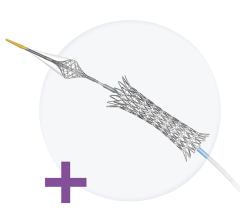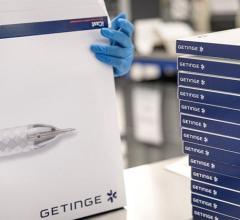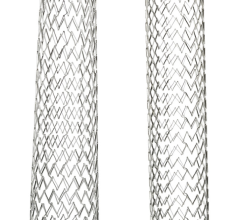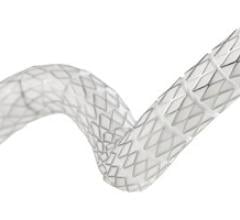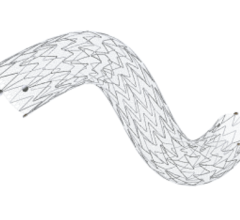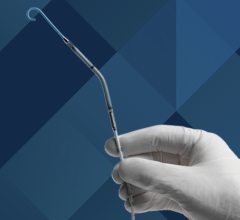April 25, 2013 — Stenting reopens completely blocked bowel arteries, preventing damage and even death from a condition that causes individuals severe pain and leads to excessive weight loss, notes research being presented at the Society of Interventional Radiology's 38th Annual Scientific Meeting in New Orleans, La.
"Stenting blocked mesenteric arteries saves lives," said Daniel A. Leung, M.D., program director of vascular interventional radiology for the Christiana Care Health System based in Wilmington, Del. "Open surgery has traditionally been the primary treatment for patients with a 100 percent blocked mesenteric artery, but that is associated with high mortality rates and a long recovery and many patients don't qualify for surgery due to poor health," said Leung. "Our research found that stenting the main mesenteric artery supplying the bowel can almost immediately resolve patients' symptoms — even when that artery is 100 percent blocked — allowing them to recovery rapidly. And those results last," he added.
Just as plaque can build up in heart arteries and cause a heart attack, it can accumulate in bowel arteries. This condition, called chronic mesenteric ischemia, can cause dangerous weight loss, malnourishment and death because the intestines are prevented from receiving the oxygen-rich blood they require to digest food. Surgery can correct the problem, but is risky. The study suggests minimally invasive mesenteric artery stenting can safely and effectively open blocked arteries and keep them open.
In the study, 40 of 46 patients (87 percent) who had completely blocked superior mesenteric arteries had a successful procedure restoring blood flow to the bowel and all experienced immediate relief of their symptoms. Of the remaining six subjects, one patient could not be reached and five patients were referred for other treatment, including surgery. Leung noted that stenting of a completely blocked mesenteric artery has in the past been considered a difficult and risky procedure. The study shows not only is stenting of this artery possible, but it can safely and successfully restore blood flow to the bowel and promptly resolve patients' symptoms with few complications.
There are three major mesenteric arteries that run from the heart to the small and large intestines. These arteries, called the celiac, superior and inferior mesenteric arteries, supply everything needed to fuel the energy-intensive process of digestion. A build-up of plaque causes hardening and narrowing of these arteries associated with peripheral arterial disease (PAD) and risk factors like smoking, obesity, high blood pressure and high cholesterol levels. A blood clot may also obstruct these arteries. When one or more of these important blood vessels is blocked, digestion is hindered or halted altogether, causing any number of symptoms including terrible abdominal pain, nausea, vomiting and diarrhea.
Those who are too frail for major abdominal surgery can now recover quickly with stenting. The device itself is a miniature mesh cylinder that is navigated through a small incision and the patients' blood vessels to the blocked artery using medical imaging as a guide.
"Elderly patients or anyone with peripheral arterial disease experiencing abdominal pain after a meal and suffering from weight loss should see an interventional radiologist to be evaluated for chronic mesenteric ischemia. There are a variety of options available to them, including minimally invasive treatments like this one," said Leung.
For more information: www.SIRweb.org
Abstract 16: " Stenting of Superior Mesenteric Artery Chronic Total Occlusions in Patients With Chronic Mesenteric Ischemia: Technical and Clinical Outcomes," C.J. Grilli, C.R. Fedele, O.M. Tahir, J. Velez Velez, C. Wrigley, M.M. Ali, G. Kimbiris, M.J. Garcia, D.A. Leung, Christiana Care, Wilmington, Del. ,SIR 38th Annual Scientific Meeting, April 13–18, 2013. This abstract can be found atwww.SIRmeeting.org .


 November 24, 2025
November 24, 2025 



